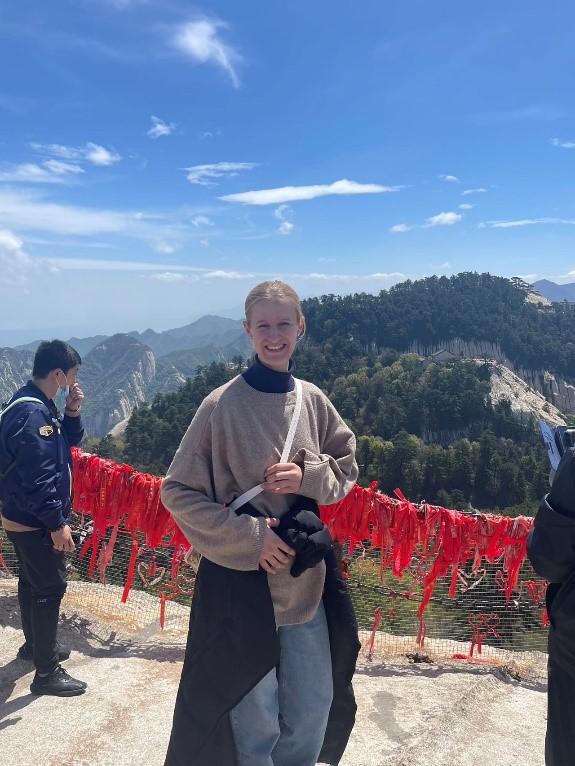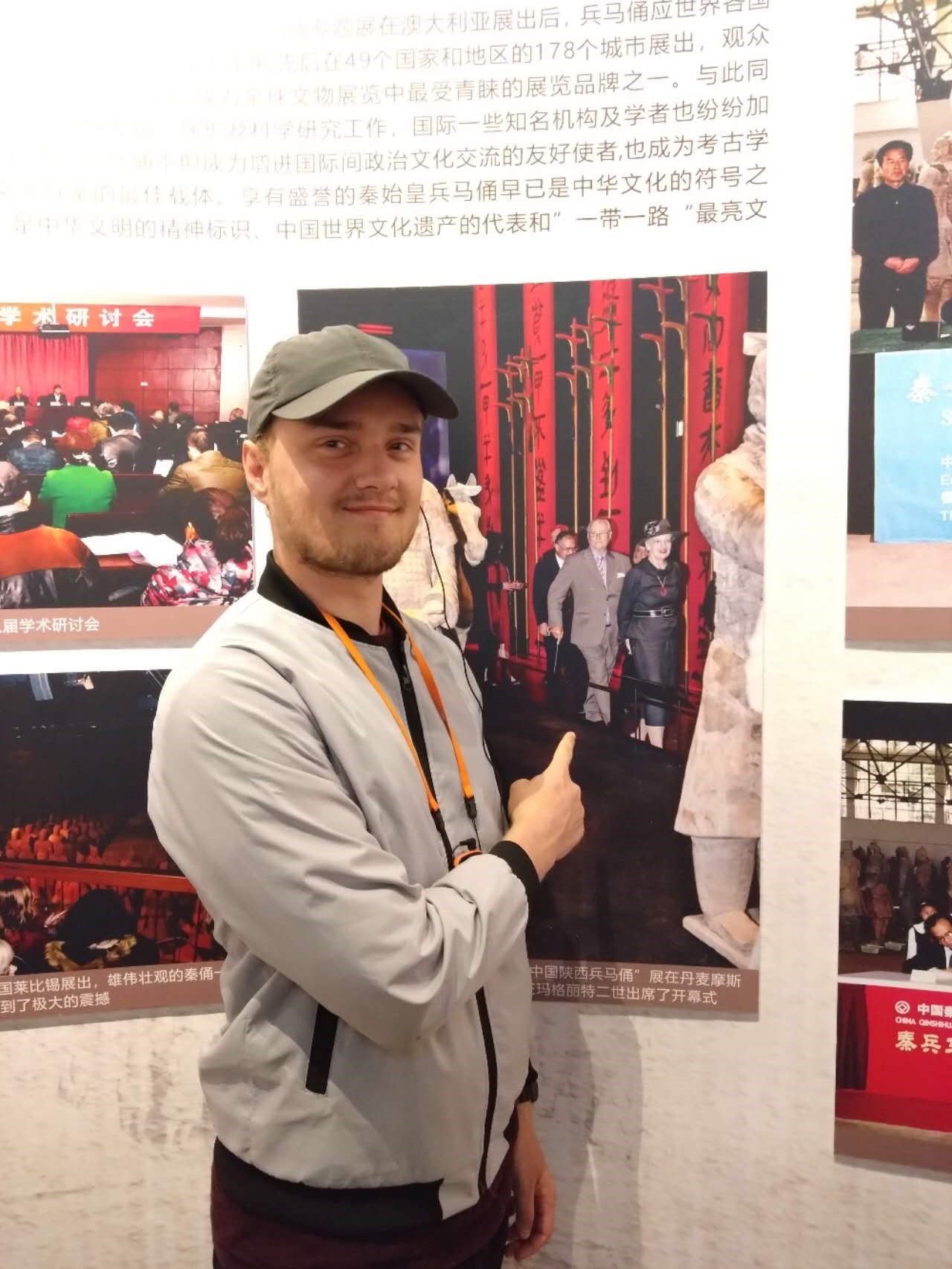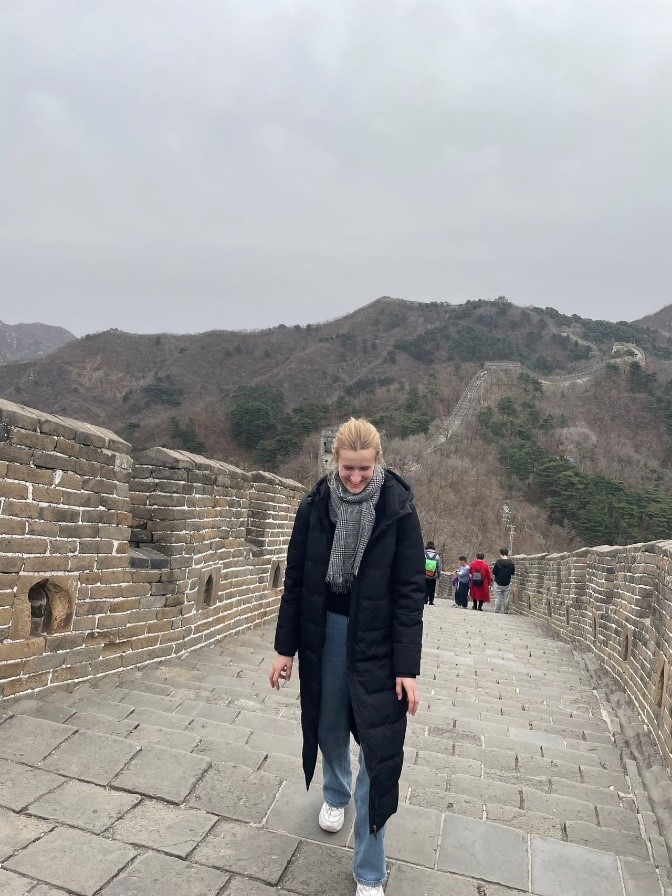Q&A | Foreign exchange students on learning Chinese at PKU - Part One
May 31, 2023
Peking University, May 31, 2023: Every year, a group of
students from Aarhus University in Denmark and the University of
Würzburg in Germany enroll in the China Studies Exchange Program at
Peking University (PKU). As part of the European Chinese Language and
Culture (ECLC) Program, it aims to enable students to seamlessly
integrate a full semester of studies in China into their home
curriculum.
How do these Danish and German students start on
this path of learning Chinese? How has their experience at PKU been? In
the following Q&A sessions conducted by student journalists with PKU
News, let’s hear from Signe and Mikkel from Denmark! The Q&A has been edited for clarity and length.
 Signe 沈思宁
Signe 沈思宁
 Mikkel 韩明歌
Mikkel 韩明歌
Q: Tell us about yourselves!
Signe: Hello!
My name is Signe Johanne Christiansen, and my Chinese name is 沈思宁 (our
Chinese teacher in Denmark gave us our Chinese names). I’m 22 years old
and currently an undergraduate student from Denmark. In Aarhus (the
second-largest city in Denmark), I live in my own little apartment near
the city center and university, but I’m from Svendborg on the island of
Fyn, a pretty small city compared to Beijing. I like to read and ride
horses in my free time. Also, I will never say no to a night out or a
drink!
Mikkel: Hey, my name is Mikkel and my
Chinese name is 韩明歌. I am 24 years old. I live in Aarhus in Denmark but I
am originally from the rural western part of Denmark. I used to be a
semi-professional athlete when I was younger, competing for Denmark in
rifle shooting in the Olympics. After my athletic career, I served in
the Danish Royal Life Guard Regiment as a conscript royal guard for
eight months. I’m interested in politics and international affairs and I
hope to pursue a Master’s degree in geopolitics abroad after
graduating.
Q: Can you teach us some common Danish phrases?
Signe: "Hygge": It’s a word that’s close to ‘cozy,’ but there is no correct
translation. It’s a word that is very special to the Danes. It usually
means a cozy time with the people you are close to, in a pretty intimate
setting, or when there is something delicious and sweet to eat.
"Bajer": Though the usual translation for beer is ‘Øl’, ‘bajer’ is a commonly used slang that is also more fun to say.
Mikkel: "Skal vi have en better bajer?" — which means, “We should get a beer.”
Q: How did you start learning Chinese and what was learning Chinese like at your university?
Signe: It’s
by accident, really. Just a couple of weeks before the deadline for my
university applications, I was searching for the English studies
program, but I accidentally pressed into a link for the China studies
program (or ‘Kina Studier’). As I read more about it, I was reminded
that I have always been interested in Chinese culture and history since
childhood. So I thought “Hvorfor ikke? (Why not?)”, and I applied and
got into the program. I have really enjoyed studying Chinese so far and I
do not regret my decision to apply for this program on a whim.
It was difficult to learn Chinese in Denmark because there wasn’t a
natural linguistic environment. In Denmark, we never actually use
Chinese outside our classes, because everyone either speaks Danish or
English; but here in China, you often meet people with whom you can only
communicate with in Chinese. We’ve actually started to use Chinese
among ourselves and it’s funny that we can feel our Chinese proficiency
is exceeding our Danish proficiency.
Mikkel: I
started learning Chinese in high school. During that time, I went on
school trips to Chinese cities like Beijing, Yangzhou, Nanjing, and
Shanghai, which really piqued my interest in China and the Chinese
language. I also really enjoy international environments, which is part
of the reason why I was attracted to studying Chinese [at college].
Studying Chinese in Aarhus is definitely a great experience, but it
cannot compare to studying at PKU. Learning Chinese in Denmark is still a
challenge without that natural linguistic environment, but Aarhus is
quite an international city so we will be able to find a Chinese
language partner. Still, being surrounded by the Chinese language here
at PKU helps us learn faster. I personally think that the ECLC program
between Aarhus University and PKU is the unique selling point of our
program.
Q: How has your time at PKU been? What are your biggest takeaways from your time in China thus far?
Signe: My time at PKU has been very good so far, so much so that I don’t look
forward to going home at all. I feel that my Chinese is improving so
much faster here. The environment on campus and the atmosphere in class
are especially good, which provides me with a safer environment to make
mistakes when speaking Chinese. Also, the PKU campus is really
comfortable and beautiful and I enjoy spending time on the campus.
 Soaking in the campus
Soaking in the campus
I think I will leave China with a major addiction to buying things
online and I think I might never be satisfied with Danish food again. I
have a much better understanding of the Chinese everyday life and I have
made a lot of new Chinese and international friends, including my very
helpful language partner!
Mikkel: I really enjoy my time here,
both at PKU and in China. I have learned that people are not that
different, even if they are from different parts of the world. On a more
personal note, I really want to live in China for a longer period of
time.
Q: Any things you’d like to tick off your to-do list in China before returning home?
Signe: I want to visit the Great Wall in Beijing and see the Terracotta
Warriors (in Xi'an, northwest China's Shaanxi Province) again. I see
them as a symbol of China and the essence of Chinese history, which I’ve
always been interested in. I also hope to be able to hold a
conversation with a Chinese before I leave China, and I think I’m not
too far from that goal!
 Climbing the Great Wall
Climbing the Great Wall
 Huashan in Shaanxi Province
Huashan in Shaanxi Province
Mikkel: I
am going to do my best to eat all the amazing Chinese food I can find.
It has become a personal goal of mine to do what I can to eat all the
dishes I cannot find back in Denmark. I also hope to improve my spoken
Chinese and boost my confidence in my language skills.
Written and interviewed by: Su Huangyi and Vincent Jeong
Edited by: Dennis Meng




